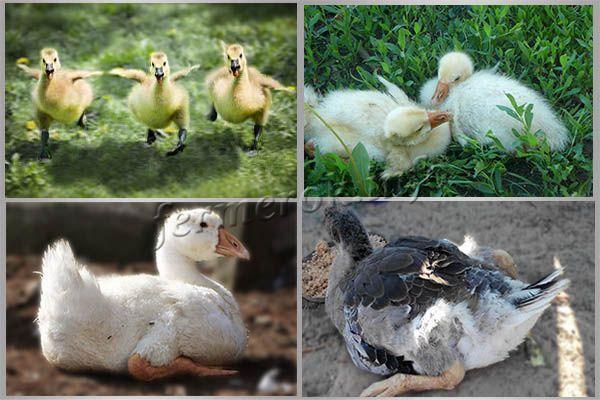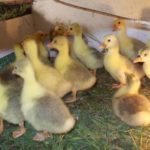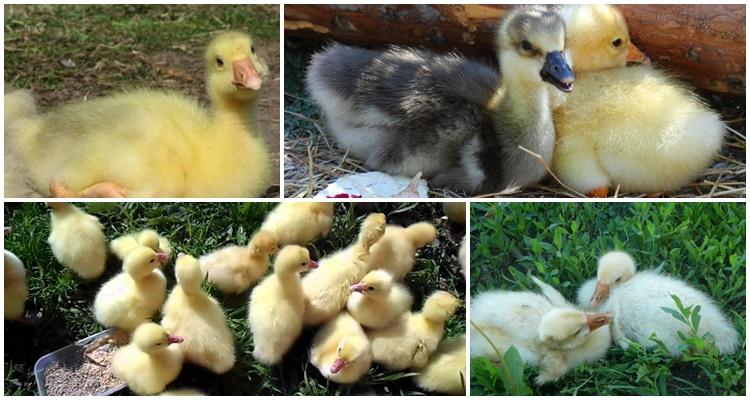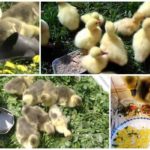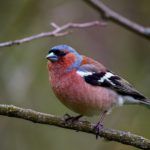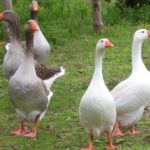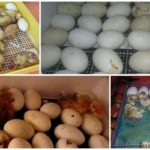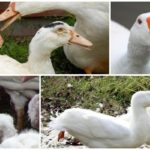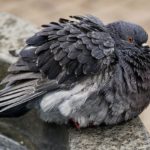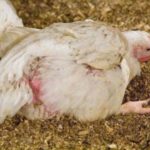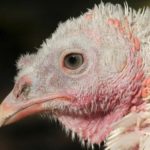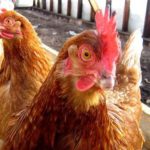The death of goslings in the first weeks of life is a common problem. Why week-old goslings get sick and die, how to preserve the young are questions that concern all poultry farmers. There are several main causes of death for pets: infections, food poisoning. If the goslings are not provided with proper living conditions and care, then the likelihood of death increases.
Poisoning
The diet of goslings needs to be constantly paid attention to, since nutritious food will help raise a healthy bird. You should not feed your pets beets or potato peelings, which can cause digestive disorders.The quality of the feed is also of great importance, because food that is stale or moldy causes intestinal upset.
Main symptoms of poisoning:
- vomiting and diarrhea;
- rapid breathing, convulsions;
- increased salivation and thirst.
In the summer, when grazing goslings in meadows, you need to control the composition of the greenery that the bird plucks. Poisonous plants include: dope, henbane, potato tops, cress, ragweed, spurge. If the goslings are not given timely assistance, they may die.
Infectious diseases
If treatment is not started in a timely manner, infectious diseases quickly spread in a flock of birds.
Geese most often die from the following diseases:
- salmonellosis affects chicks aged from 3 to 30 days and occurs due to feed contaminated with the virus and lack of vitamins. Overcrowding and poor living conditions lead to the rapid spread of the disease;
- week-old goslings become infected with enteritis, the mortality rate of which is approximately 95%. The disease affects the liver, cardiovascular system, intestines and spreads by airborne droplets;
- The causative agent of colibacillosis is Escherichia coli. The main symptom of the disease is diarrhea. Violation of the rules of maintenance, feeding and care provokes the emergence and spread of infection.
With high humidity and damp straw, birds become infected with aspergillosis. Molds affect the respiratory organs (sinuses, lungs), skin, kidneys, and brain.
Invasive diseases
A group of diseases caused by parasites quite often affects young animals.Diseases can cause growth retardation and weight gain in birds:
- sources of worm infection are dirty ponds, puddles, and uncleaned poultry houses. If parasites are present, the bird loses appetite and weight. It is difficult to treat the infection, the recovery period is long, so the bird must be constantly looked after;
- Echinostomatidosis is caused by the parasites trematodes and echinostomates, which enter the bird's body when pecking small fish, tadpoles, and frogs. Weakness, diarrhea, loss of appetite are symptoms of infection.
Skin parasites (mites, lice eaters) cause itching and suck the bird's blood. The goslings do not gain weight, pull out feathers, become depressed, and develop dermatitis on the skin.
Feeding and maintenance problems
When well maintained, goslings grow quickly and gain weight. However, it must be taken into account that this bird is selective in relation to feed. Chicks up to 20-25 days old are fed with complete feed or grain and flour mixtures.
You can make the food yourself: mix wheat bran, boiled carrots, peas, and fish oil.
Compliance with maintenance standards is the key to raising healthy goslings. Young animals need a warm, dry, ventilated room. Recommended temperature range is 25-30 °C. The floor is covered with sawdust or straw.
Preventive actions
Correctly diagnosed and promptly started treatment allows you to save goslings. Thanks to prevention and compliance with the requirements for raising young animals, the occurrence of diseases can be prevented:
- regular disinfection of the poultry house (the walls are periodically treated with slaked lime). Feeders and drinking bowls are constantly cleaned;
- thanks to periodic disinfestation, the larvae and eggs of parasites are destroyed;
- a fortified diet increases the bird’s immunity;
- Special additives in food (Kormogrizin, Biovit, Paraform, potassium permanganate solution) will help prevent food poisoning.
Separate keeping of adult birds and young animals is encouraged. This measure will prevent the spread of infections. For walking, select an area protected from drafts and direct sunlight.
Preventive measures, provision of comfortable living conditions, and a properly selected diet can reduce the mortality rate of goslings. It is important to isolate sick individuals from the rest of the flock and to correctly diagnose pathologies. Timely treatment increases the chances of recovery of goslings.

